Summer is upon us, and that means it's the season to start fantasizing about taking a summer holiday.
But regardless of whether you choose to take a holiday close to home, or hop on a flight to somewhere new this summer, one looming fear remains: how am I going to escape from work?
This is a problem for everyone, but it’s particularly painful for freelancers who are running their own businesses, and who might not have anyone to pick up the slack while they cut themselves some. According to a 2017 report by Upwork, 57 million Americans work as freelancers. And the results vary, but as many as 60 per cent of polled employees admit to working while on vacation.
And yet, we know we need time to recharge. We know we can’t deliver our best work when we’ve been run ragged for too long. Everyone needs, and deserves, a vacation — including YOU.
In the interest of providing baby steps, I’ll walk you through three types of vacations and how to take them: A working holiday, a moderately unplugged getaway, and a full-fledged vacation.
You might also like: 8 Time Management Tips for Freelancers.
Preparation
One of the main reasons you’re nervous to take time away is likely because of your clients. You’ve built your business around being responsive and reliable, so what happens if they reach out for help and receive radio silence (or an out of office message) in return?
Remember this: if a client is going to fire you for taking a vacation, you really don’t want to be working with them anyway. But it certainly pays to keep your clients informed, and that involves some advanced planning on your part.
Communicate your vacation plans
It’s important to manage expectations and let your clients know when and for how long you’ll be unavailable. If you send emails or direct mail to stay in touch with your clients, throw in a line about your upcoming vacation. Perhaps something like:
"Happy Fourth of July! Over the holiday, I’ll be unplugging to spend some quality time with my family / explore a brand new part of the world, so that I can come back refreshed and ready to tackle any new opportunities you send my way. I hope you’re able to find some time to do the same!"
See? That doesn’t sound like a shirking of responsibilities — that sounds like someone taking good care of their mental health to ensure they don’t break.
The great news about taking time off during the summer is that most people are taking some time off around then as well. There are less chances of people needing you, simply because they are (hopefully) taking time off themselves.
If you still need convincing, take a look at the hashtag #TakeADay to remind yourself that everyone deserves time away from work.
Come on, America... we can do better. #TakeADay https://t.co/PkhdjvwZ1H
— Project: Time Off (@ProjectTimeOff) November 8, 2016
Preschedule content
Just because you’re on holiday, doesn’t mean you need to drop off the face of the earth. I won’t spend much time here because these days, this sort of advice is a given, but be sure to schedule content to drip out while you’re out of the office.
Use tools like Buffer, Hootsuite, or Sprinklr to preload social content, take advantage of scheduled blog posts if you’re a content creator, and perhaps plan for an email or two to go out.
That said, make sure you’re not trying to engage your audience in a conversation while you’re away — don’t announce anything major in case people provide feedback, or report glitches when you’re not around to respond.
Schedule your OOO notification
Having a helpful and succinct out of office notification is key. It’s a helpful reminder for those who know you’re away, and a great way to inform those who missed the memo.
Here are some tips I’ve gleaned from reading other people’s OOO’s:
- Let people know the date you will be back in the office.
- Let them know what they should do in your absence if it can’t wait. Give contact information for a colleague (make sure you give that colleague a head’s up!). You can also ask people to cc you on any emails to that colleague if you want to remain in the loop.
- Another tactic is to ask them to email you again when you’ve returned, to make sure you see it (although that’s always seemed a bit redundant to me).
Make sure you get the tone right. If you’re off on an adventure, and you don’t anticipate any catastrophic emails coming your way, feel free to have a little fun with it. Here’s something my colleague Hailey Coleman set up as her OOO:
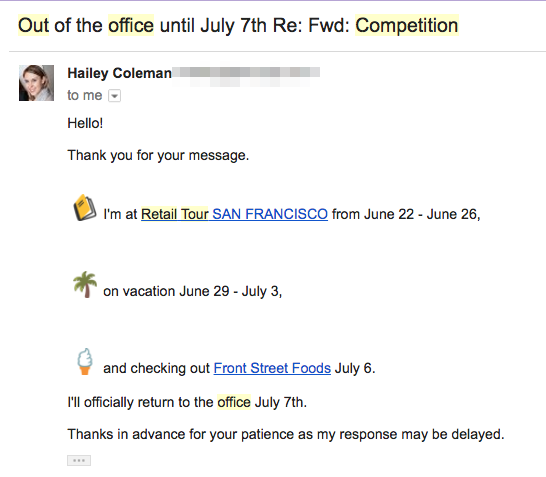
Who doesn’t love an emoji-laden message when appropriate?
That said, it might not be appropriate. If there’s a time-sensitive issue that people are emailing you about, it might seem callous to throw your vacation in their faces. I personally like to set a professional tone for my out of office notifications. Here’s one I used most recently:
TITLE: I’m out of the office — here’s who to contact.
Hi there!
I'm on vacation from July 11-15 so I'll be slower than usual to respond to emails.
If it's urgent, I recommend emailing Simon Heaton (******@shopify.com). Please cc me if you do.
Thanks, talk to you soon!
Courtney
As you can tell, and as is true for many of us, I’m guilty of keeping up with my emails while I’m away. Feel free to tweak that copy to something that demonstrates more clearly that you will not be responding to emails in your absence. In fact, I encourage it.
Now that you’ve gotten everything prepared, it’s time to say goodbye to your office and colleagues, and say hello to the new you: a vacationing you! Greetings, mimosas with breakfast. Goodbye, early morning alarm clocks.
There are three ways you can handle this.
You might also like: Writing a Freelance Invoice That Gets You Paid Faster.
1. The complete unplug
Yes. I’m talking no work emails, no work calls, no work chatting, no work thoughts.
Fine. That’s probably not possible, especially when you love what you do. But your colleagues and clients shouldn’t expect to hear from you, so I’ve outlined some steps you can take to actualize the vacation you have always dreamed of; one where you are completely and totally untethered from your regular work life. Here’s how to make that dream a reality.
Create a vacation email address
Checking email compulsively is like a drug addiction. Giving it up cold turkey is damn hard. But there are ways around it, to avoid having to check your general inbox.
To stop yourself from peeking into the chaos that is your vacation-time inbox, set up a separate email address just for vacation. Who are the people most likely to reach out to you on your holiday? What might they need? Share the new address with only the people who might absolutely need to reach you — key clients, family members, or anyone looking after your home.
Use filters in your work email to forward any travel-related memos to your vacation email so you don’t miss any flights or trains!
Kind of exciting to have a secret email… but make sure it stays that way, or else you’ll be right back where you started, with an overloaded inbox.
Find backup
While you may not be in a position to hire a full-time assistant, perhaps consider one for the duration of your vacation.
Hire a virtual assistant who can help you with administrative tasks and simple requests that pop up in your absence. You’ll sleep easier knowing that someone is representing your business while you’re away. And you just might find you want to keep them around when you return to the office…
Additionally, lean on any freelancer friends working in your industry. Feel free to add them to your OOO notification as a contact in case of emergency. If you throw some work their way, that karma will likely come back around in the future. Make sure that anyone you refer a current or potential client to, will reflect well on you — you don’t want to damage your own reputation while giving business away to someone else.
You might also like: How to Hire Employees: The Essential List of Resources for Agency Owners.
Think of everything that could throw a wrench in your plans
Of course, there are bound to be circumstances you can’t anticipate, so come up with an emergency action plan, or a “triage list.” Something along the lines of, “If (list of things) happens, it can wait until I’m back. If (list of things) happens, contact X.”
You should be at the very bottom of this triage list. As in, only in case of a real catastrophe, should you be notified while you’re working on your beer gut.
Helpful tools and apps
Inbox Pause
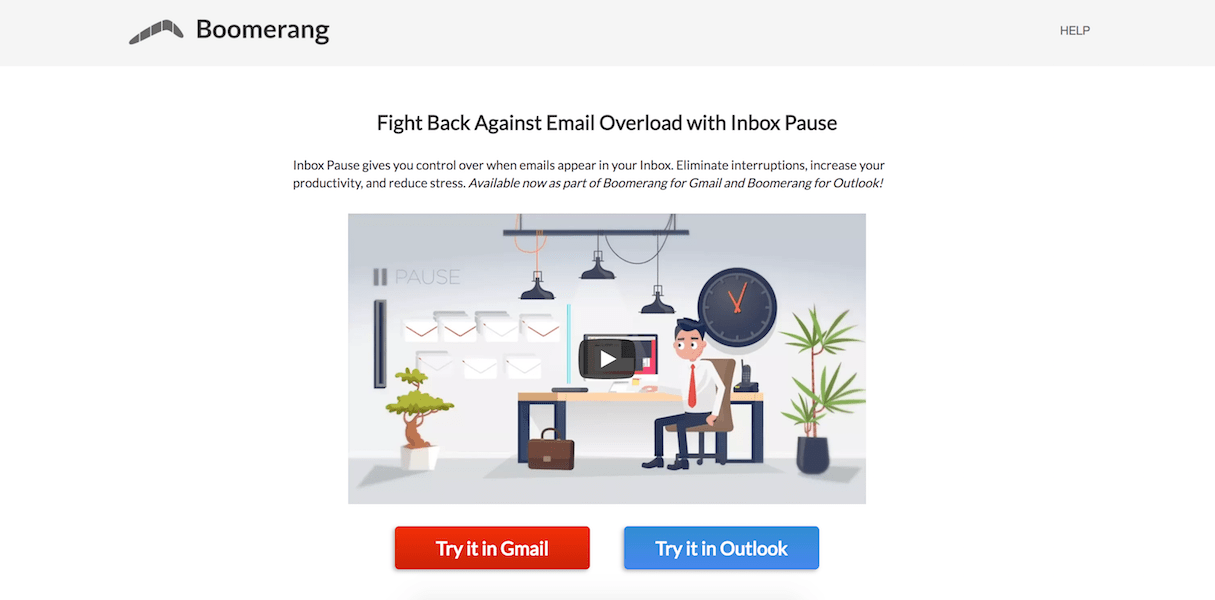
Don’t you love a self-explanatory app name? With this tool, you have the ability to “pause” or temporarily block emails from landing in your inbox, until you’re ready for them. You can’t be distracted by emails in your inbox if there aren’t any!
Freedom
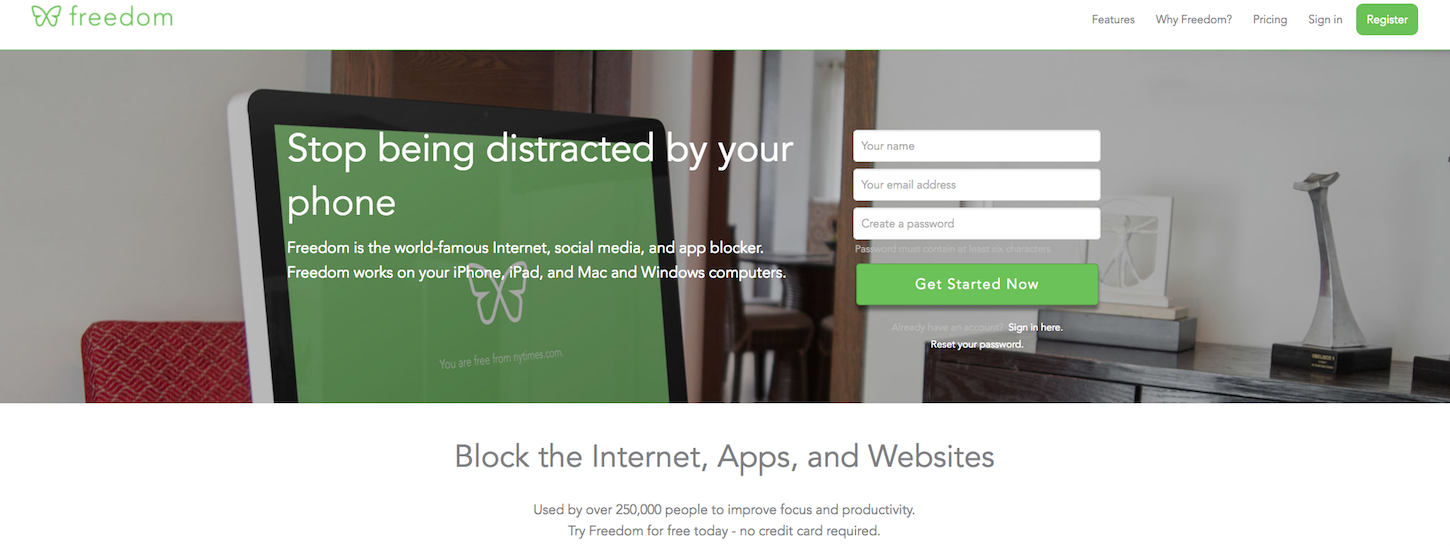
“Stop being distracted by your phone / computer / laptop / tablet,” this website so wisely tells us. This internet, social media, and app blocker will help eliminate distraction by disabling those pesky notifications that leave us twitching until we can respond to them.
Wagepoint

This cloud-based payroll service allows you to pay your employees (and yourself), while you’re away. It helps take care of direct deposits, payroll calculations, income taxes, and deductions. Make sure to preset your auto-approval settings so that the app can make your predetermined decisions, while you’re blissing out in the sun.
2. The moderate unplug
I think you know exactly what I mean by this.
The moderate unplug is the one where your name still shows up in the team’s Slack channel. Or when the number of emails in your inbox remains in the double-digits, instead of creeping into the dreaded three-digit zone. Or when you tell your colleagues they can ping you if something reeeally important comes up.
Here are some tips to make sure that even when you’re slightly connected, you’re able to enjoy some time to yourself, with your spouse, or with family.
Keep your work to basic tasks
Don’t bother trying to deep dive into complex projects. Keep it simple — commit yourself to responding to emails, getting back to important phone messages, and being available for quick clarifications or questions.
Pro tip: if you read an email that you don’t have the bandwidth to respond to at the moment, star it for when you return, and try to forget about it until then.
This strategy will allow you to maintain a reasonable number of unread emails, so you don’t have a heart attack when you return to the office.
Schedule windows of availability
To set expectations, and to leave you with time for a siesta or two, pick a time block during which you will consistently be available while you’re on vacation. Aim for two hours, or less per day. Let your clients and colleagues know that they can reach you within that timeframe, and that timeframe only (unless it’s a legitimate emergency).
Pick a time that will be convenient for as many people who might try to reach you as possible, but ultimately it should fit well with your agenda. Perhaps choose a morning window from 9-11AM so that you can catch up on emails over coffee, and then not think about work again for the rest of the day. Maybe you’ll tune in from 3-5PM so you can catch people before they leave the office. Choose wisely, and be consistent.
Make use of tools and apps
Mailstrom
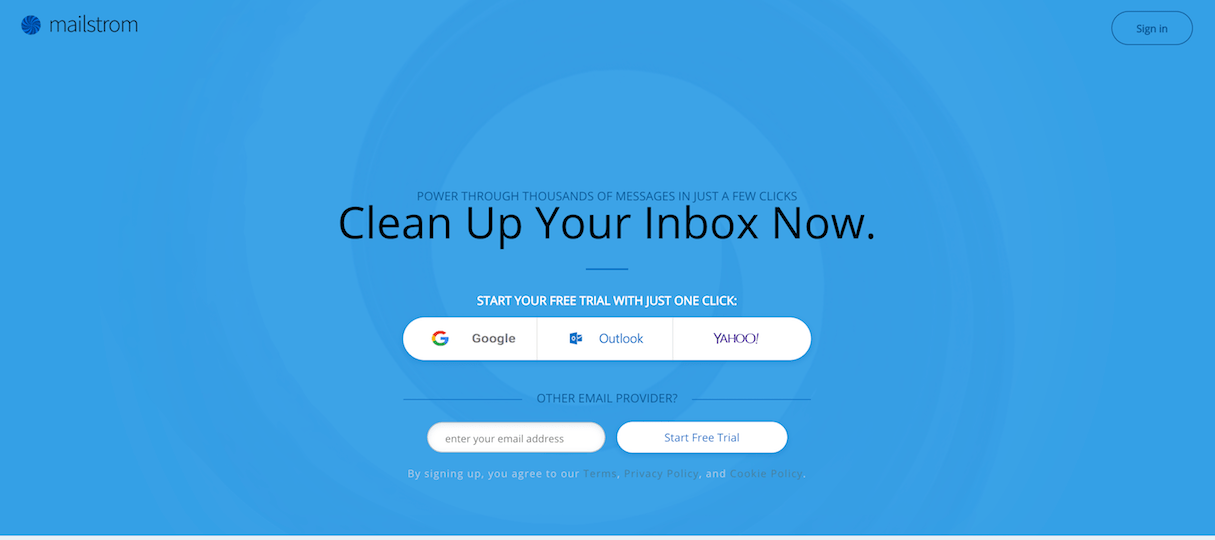
Mailstrom has a variety of features that allow you to maintain control over your inbox. This tool bundles related mail so you can deal with tens, even hundreds, of emails at once, instead of one by dreaded one. You can sort emails based on how frequently you respond to the sender, and make use of spam filters and the unsubscribe feature to quickly prioritize what can be banished forevermore from your inbox.
Offtime

Not only does this app allow you to schedule blocks of uninterrupted time to spend with your friends and family, it also provides analytical data about your phone usage. Note that this data could be used against you by your significant other or travel companion, as an “I told you that you work too much” moment.
You might also like: What is the Gig Economy and How do You Succeed in it.
3. The working vacation
Back up EVERYTHING
Back up your computer and phone before you leave. Just do it. I speak from experience. I once dropped my cell phone in the ocean as my hand trembled from the sheer excitement of being about to set foot on a tropical island. That’s right, I hadn’t even actually set foot on it yet before I lost my phone to the ocean forever. (In actuality, a very kind diver jumped in and recovered it, but no amount of rice could do away with all that salt buildup.)
If only for sheer peace of mind, protect yourself from accidentally breaking, losing, or having stolen your most prized technological possessions.
Stay connected
Plan for the instances when you won’t have access to WiFi. Make sure you have a tethering plan, or purchase a wireless hotspot.
For cases when the Internet is super sloooooow, try setting up a secondary browser to help speed things up. Choose any browser, but make performance-enhancing tweaks like blocking ads and Flash, removing most (or all) extensions, enlarging your cache (so that you don’t have to re-download everything when you return to a page), disabling images, and preventing automatic updates. Combined, these changes will help prevent you from tearing your hair out, as you try to get something done on a bad connection.
Leave the technology behind (when possible)
This is a personal challenge that I would like to issue to you. Physically distance yourself from your laptop for as long as you can throughout the day. If you’re out and about with your laptop in your bag, it’s easy to hop into a spreadsheet or start a document based on an idea that just popped up. If your computer isn’t physically on you, you’ll be less inclined to succumb to these urges when you’re trying to enjoy a non-work related activity.
I would extend this to your phone as well — try just turning it off. Sounds crazy, I know, and there are some reasons why this might not be possible for you. But would the world really end? Give it a try for as long as you can. I can promise that everything you feel like you’ve missed, will be ready and waiting for you when you turn it back on.
Make use of tools and apps
SaneBox
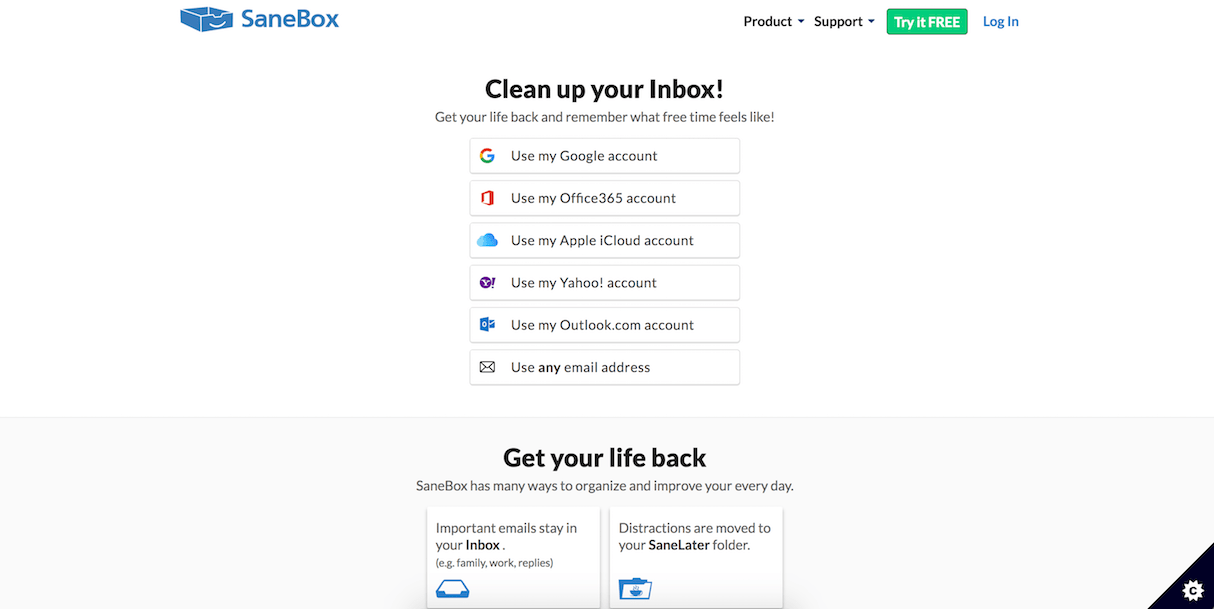
If you have to check emails while on vacation, you might as well stay sane while doing it. This inbox-manager tool has tons of cool features, like allowing you to see all emails coming from a “do not reply” address, “snoozing” an email so it pops up only when you’re ready to deal with it, and the ability to automatically upload attachments to the cloud, so you’re not wasting time and space downloading them.
Expensify
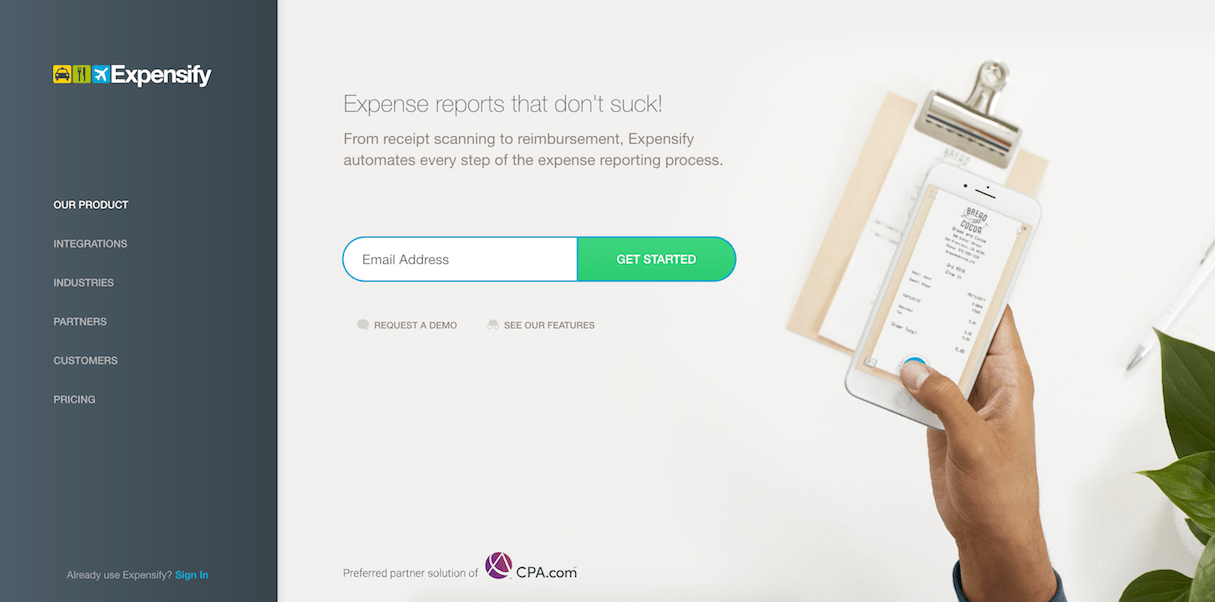
If you’re on a legitimate work vacation (as in, visiting with clients, attending a conference, or doing market research), you’re likely tracking expenses as you go for invoicing and/or tax purposes. This mobile app lets you scan receipts and process expenses on the go, so you don’t have to play catch up when you’re back in the office. It works even when you’re offline and without WiFi.
Fuze

Consider this tool if you’ll be doing remote calls with colleagues or clients while you’re away. The app uses VoIP for both mobile and desktop audio and video conference calling, and allows you to share your screen and presentation decks when needed. You likely already have a video call solution you rely on (at Shopify, we prefer Zoom and Google Hangouts), but it never hurts to have a fallback plan.
WiFiMapper
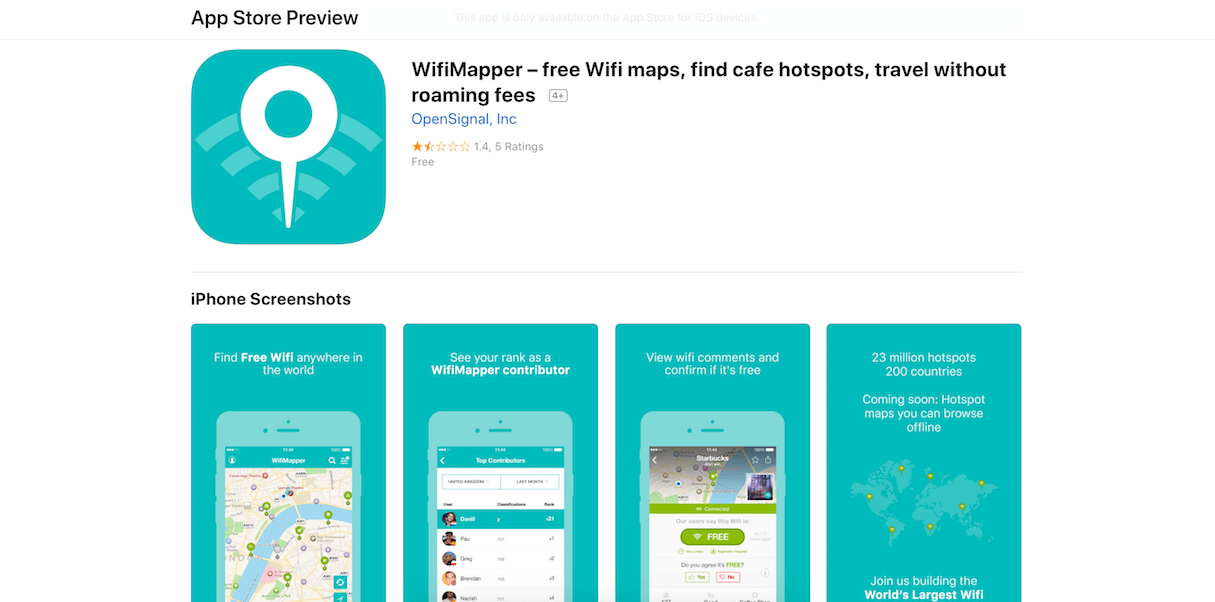
Find free WiFi anywhere in the world with the help of this app that tracks nearly 500 million international WiFi networks. Cut down your roaming charges with more than two million free hotspots, recommended and mapped out for you. The app will also tell you what kind of venue the hotspot is, how reliable the connection is — and even whether or not they have good coffee.
Take some time for you
We hope these tips help you take a restful and fun vacation this summer, so you can come back to work re-energized for the rest of the year.
What are your most effective tactics for taking time away from the office to travel or visit with family? Share your strategies in the comments below.
Read more
- 9 Noteworthy Coworking Spaces in NYC
- What is Personal Branding? A Freelancer’s Guide
- Why We’re Sending a Shopify Developer Around the World (And How You Can Connect With Her)
- Jeffrey Zeldman Shares His Advice for Aspiring Freelance Web Designers
- What is Impostor Syndrome? 6 Ways for Designers and Developers to Overcome it

